| Conferences > Extracellular Vesicles (EVs) & Nanoparticles 2024: Diagnostics, Delivery, Therapeutics > Keynote Speakers |
| Register | Login |
Daniel ChiuA. Bruce Montgomery Professor of Chemistry, University of Washington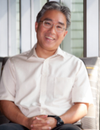 Daniel T. Chiu is currently the A. Bruce Montgomery Professor Chemistry, Endowed Professor of Analytical Chemistry, and Professor of Bioengineering at the University of Washington. He is a member of the University of Washington’s Center for Nanotechnology, Neurobiology and Behavior Program, and the Cancer Consortium of the Fred Hutchinson Cancer Research Center. He has authored more than 180 publications and is the inventor on over 40 issued patents. Dr. Chiu obtained a B.A. in neurobiology and a B.S. in chemistry at the University of California, Berkeley in 1993, and a Ph.D. in chemistry from Stanford University in 1998. |
Tony Jun HuangWilliam Bevan Distinguished Professor of Mechanical Engineering and Materials Science, Duke University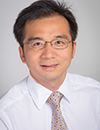 Tony Jun Huang is the William Bevan Distinguished Professor of Mechanical Engineering and Materials Science at Duke University. Previously he was a professor and the Huck Distinguished Chair in Bioengineering Science and Mechanics at The Pennsylvania State University. He received his Ph.D. degree in Mechanical and Aerospace Engineering from the University of California, Los Angeles (UCLA) in 2005. His research interests are in the fields of acoustofluidics, optofluidics, and micro/nano systems for biomedical diagnostics and therapeutics. He has authored/co-authored over 260 peer-reviewed journal publications in these fields. His journal articles have been cited more than 32,000 times, as documented at Google Scholar (h-index: 95). He also has 26 issued or pending patents. Prof. Huang was elected a fellow (member) of National Academy of Inventers (USA) and the European Academy of Sciences and Arts. He was also a fellow of the following six professional societies: American Association for the Advancement of Science (AAAS), the American Institute for Medical and Biological Engineering (AIMBE), the American Society of Mechanical Engineers (ASME), the Institute of Electrical and Electronics Engineers (IEEE), the Institute of Physics (UK), and the Royal Society of Chemistry (UK). In addition, he has selected to receive many prestigious awards and honors including a 2010 National Institutes of Health (NIH) Director’s New Innovator Award, a 2012 Outstanding Young Manufacturing Engineer Award from the Society for Manufacturing Engineering, the 2014 IEEE Sensors Council Technical Achievement Award from the Institute of Electrical and Electronics Engineers (IEEE), the 2017 Analytical Chemistry Young Innovator Award from the American Chemical Society (ACS), the 2019 Van Mow Medal from the American Society of Mechanical Engineers (ASME), and the 2019 Technical Achievement Award from the IEEE Engineering in Medicine and Biology Society (EMBS). In the last two consecutive years (2022-2023), he has been named to a global list of the most highly cited researchers (cross field) by Clarivate (Web of Science). |
Damien PearseProfessor, Department of Neurological Surgery; The John M. and Jocelyn H.K. Watkins Distinguished Chair in Cell Therapies, University of Miami Miller School of Medicine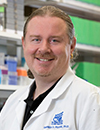 Dr. Pearse is a Professor at The Miami Project to Cure Paralysis, Department of Neurological Surgery at the University of Miami Miller School of Medicine. Dr. Pearse is also a Research Health Scientist at the Bruce Carter Miami VA Healthcare System. Dr. Pearse received his undergraduate degree in Biotechnology and doctorate in Neuroscience from Griffith University, Queensland, Australia. Following a postdoctoral fellowship at The University of Miami, Dr. Pearse joined the faculty. Dr. Pearse was an associate in the Christopher and Dana Reeve Foundation Consortium from 2000 to 2006 and in 2005 received the Erica Nader Award for being the Outstanding Investigator in SCI Research from the American Spinal Injury Association. Dr. Pearse is currently The John M. and Jocelyn H.K. Watkins Distinguished Chair in Cell Therapies where his work is focused on the translation of autologous cell therapies for neural repair following spinal cord injury and other neurological disorders. |
Dominique PV de KleijnProfessor Experimental Vascular Surgery, Professor Netherlands Heart Institute, University Medical Center Utrecht, The Netherlands Prof. Dr. Dominique PV de Kleijn is molecular biologist and chemist and professor of Exp. Vascular Surgery at UMC Utrecht and professor at the Netherlands Heart Institute. From 2012 to 2016, he was Research Professor of Surgery at NUS/NUHS and preclinical director of the Cardiovascular Research Institute (CVRI) Singapore. He was until 2016 professor of Cardiovascular Immunology and co-chair of Experimental Cardiology at UMC Utrecht. Since 1997 he is coordinating cardiovascular research from basic science, animal myocardial infarction and atherosclerotic studies (pig and sheep) towards clinical biobanking studies. His research interests are: The innate immune system in cardiovascular disease and atherosclerosis & Biomarkers predictive for primary & secondary events with a focus on plasma extracellular vesicles. He has more then 275 publications and a H-factor of 78. |
Andrea RaymondAssociate Professor, Herbert Wertheim College of Medicine, Florida International University Dr. Raymond is a Research Associate Professor in the Department of Immunology and Nanomedicine at the Herbert Wertheim College of Medicine at Florida International University, Miami, FL. She heads a research group investigating the role of extracellular vesicles(EVs) in the pathology associated with substance use disorders, HIV NeuroAIDS, and HIV-related cancers. Dr. Raymond lab is among the first to demonstrate a potential role for exosomal EVs in HIV-associated neuropathogenesis. Her research group has shown in vitro that HIV-infected cells release EVs containing the HIV Nef protein and has demonstrated ex vivo the presence Nef-containing EVs in the serum of aviremic HIV-infected subjects. However, the functional role of these Nef-containing EVs in HIV neuropathogenesis is still unknown. Dr. Raymond seeks to understand how the content (and function) of brain and immune cell-derived EVs vary upon HIV infection and opiate exposure to identify EV-based biomarkers of HIV neuropathogenesis and opiate use disorder. |
Raymond SchiffelersProfessor of Nanomedicine, University Medical Center Utrecht Raymond Schiffelers studied Bio-Pharmaceutical Sciences at Leiden University (1990-1995). After an industrial traineeship at SmithKline Beecham Pharmaceuticals (UK) he did his PhD in medical microbiology at Erasmus University Rotterdam on liposomal targeting of antimicrobial agents (1996-2001). Subsequently he became post-doc at Utrecht University working on liposomes targeting tumor vasculature. In 2002-2003, at Intradigm Co (USA) he expanded his tumor vasculature-targeting work with polymers for delivery of siRNA. After his return to Utrecht University he became assistant and then associate professor. He received an ERC Consolidator Grant in 2010 to investigate extracellular vesicles as biological drug delivery systems. After he moved to University Medical Center Utrecht in 2011 he became professor of nanomedicine working on bio-inspired and synthetic drug delivery systems. He coordinates two H2020 projects on this topic, B-SMART and EXPERT, is editor for the International Journal of Pharmaceutics, Journal of Controlled Release and Journal of Extracellular Vesicles, and is founder of EXCYTEX-an extracellular vesicle-based company. Since 2021 he also works part-time for Nanocell Therapeutics as VP Preclinical R&D and is president of the ETPN. |
Steve SoperFoundation Distinguished Professor, Director, Center of BioModular Multi-Scale System for Precision Medicine, The University of Kansas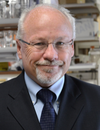 Prof. Soper is currently a Foundation Distinguished Professor in Chemistry and Mechanical Engineering at the University of Kansas, Lawrence. Prof. Soper also holds an appointment at Ulsan National Institute of Science and Technology in Ulsan, South Korea, where he is a World Class University Professor. He is also serving as a Science Advisor for a number of major worldwide companies. Prof. Soper is currently on the Editorial Board for Scientific Reports and Journal of Micro- and Nanosystems. |
Steven SticeCo-Founder and Chief Scientific Officer, Aruna Bio; DW Brook Distinguished Professor and Director of the Regenerative Bioscience Center, Georgia Research Alliance Eminent Scholar, University of Georgia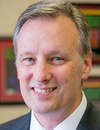 Dr. Steven Stice is Co-Founder and Chief Scientific Officer of Aruna Bio, where he directs the company’s clinical and research operations. He is also University of Georgia, DW Brooks Distinguished Professor and Director of the Regenerative Bioscience Center, and holds a Georgia Research Alliance Eminent Scholar endowed chair. Prior to joining Aruna, Dr. Stice was the co-founder and served as both Chief Scientific Officer and Chief Executive Officer of Advanced Cell Technology, the first U.S. company to advance to human clinical trials using human pluripotent stem cells. He also co-founded startups Prolinia and Cytogenesis, the latter of which has since merged with ViaCyte. |
Danilo TagleDirector, Office of Special Initiatives, National Center for Advancing Translational Sciences at the NIH (NCATS)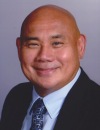 Dan Tagle is Director of the Office of Special Initiatives at NCATS where he many coordinates efforts towards development of disruptive technologies in translational research. He obtained his Ph.D. in Molecular Biology and Genetics from Wayne State University School of Medicine. He was an NIH National Research Service Award postdoctoral fellow in Human Genetics at the University of Michigan. He has served on numerous committees, advisory boards, and editorial boards. He has authored many scientific publications and has garnered numerous awards, including more recently the Roscoe O. Brady Award for Innovation and Accomplishment, and the Henry J. Heimlich Award for Innovative Medicine. |




